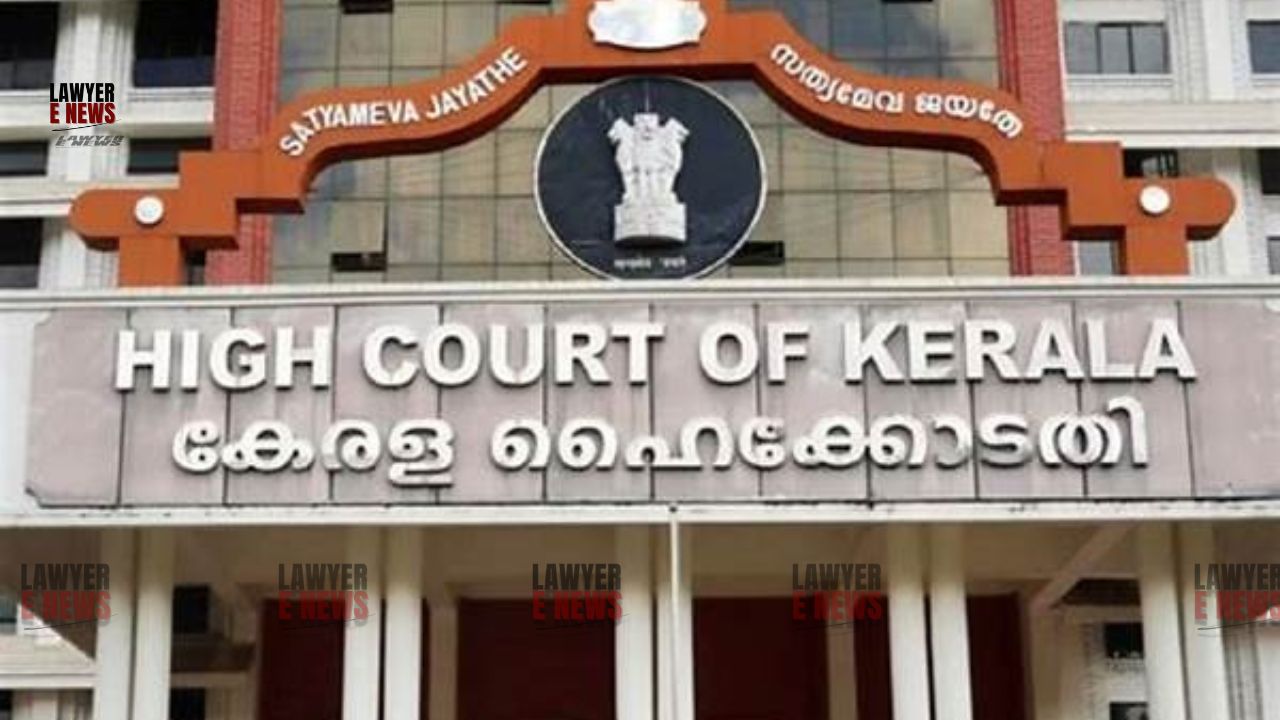-
by Admin
15 February 2026 5:35 AM



On September 13, 2024, the Kerala High Court at Ernakulam, presided over by Justice K. Babu, quashed the criminal proceedings against Hedge Equities Ltd. and its Managing Director, Alex K. Babu. The petitioners were facing charges under Sections 406, 420, and 120-B read with Section 34 of the Indian Penal Code (IPC). The court concluded that the complaint did not establish the necessary elements of the alleged offences, emphasizing the importance of prima facie evidence before initiating criminal proceedings.
The case stemmed from a complaint filed by Daizy Thomas, who accused Hedge Equities Ltd., a stockbroking firm registered with the National Stock Exchange and Bombay Stock Exchange, and its Managing Director, of inducing her to invest ₹415,650 between June 2010 and March 2011. She claimed that the firm's Branch Manager, who belonged to the same village, persuaded her to invest, promising profitable returns without the risk of loss. Thomas invested money and shares, but suffered financial losses, with a debit balance of ₹3,259.82 by February 2013. She alleged that the accused had committed cheating and criminal breach of trust, with a conspiracy to fraudulently transfer her investments to the company.
After the Judicial First Class Magistrate Court-I Chengannur took cognizance of the complaint, the petitioners approached the High Court to quash the proceedings, arguing that the complaint did not disclose the ingredients of the offences alleged and that the proceedings constituted an abuse of the judicial process.
The High Court examined whether the complaint revealed a prima facie case of cheating, criminal breach of trust, and conspiracy under the IPC, and whether the proceedings were an abuse of the court's process. The petitioners contended that the complainant had an alternative remedy under the SEBI Act, which mandates that complaints regarding offences under the Act be made by SEBI itself. They argued that the complaint did not establish any dishonest or fraudulent inducement, and that the complainant was fully aware of the risks involved in stock market investments. The respondent argued that the complaint did disclose the necessary elements of the offences and that the SEBI Act did not provide immunity from prosecution under other penal statutes.
Justice K. Babu referred to the principles laid down in Rajiv Thapar v. Madan Lal Kapoor and Prashant Bharti v. State (NCT of Delhi), focusing on whether the material relied upon by the accused could negate the charges and whether continuing the trial would result in an abuse of the court process. The court observed that the complainant had prior experience in the share market and made the investments voluntarily, with an understanding of the market risks. The agreement between the complainant and the accused outlined the potential risks involved in trading equities and commodities, and the complainant was fully aware of these risks.
The court noted that there was no prima facie evidence indicating that the accused had any dishonest or fraudulent intentions at the time of the transaction. The materials provided by the accused were of impeccable quality and were sufficient to reject the factual assertions contained in the complaint. The complainant failed to provide any evidence of misappropriation or conspiracy by the accused, and there was no indication that the accused acted with criminal intent.
The court clarified that Sections 26 and 27 of the SEBI Act pertain specifically to offences under the Act and do not preclude criminal proceedings under other statutes if a prima facie case exists. However, in this case, the complaint did not establish the elements of the alleged offences under the IPC. The court emphasized that summoning an accused in a criminal case is a serious matter that requires concrete evidence rather than mere allegations. The prosecution in this case was found to be an abuse of the process of the court, as the allegations did not prima facie establish the offences of cheating, criminal breach of trust, or conspiracy.
Justice K. Babu further explained that for an offence under Section 420 of the IPC, there must be deception with the intention to induce a person to deliver property or to cause harm. For criminal breach of trust under Section 406, there must be entrustment of property followed by dishonest misappropriation or conversion for personal use. The court found that the complainant's voluntary investments, with an understanding of market risks, did not constitute deception or dishonest inducement. There was no evidence of criminal breach of trust or conspiracy.
The Kerala High Court quashed all further proceedings in C.C.No.3094 of 2013, ruling that the allegations did not establish a prima facie case for the offences alleged. This judgment highlights the court's role in exercising its supervisory jurisdiction under Article 227 of the Constitution and its inherent powers under Section 482 of the Criminal Procedure Code (Cr.P.C.) to prevent the abuse of the judicial process. The decision sets a precedent on the necessity for clear and concrete prima facie evidence before initiating criminal proceedings, particularly in complex financial transactions.
Date of Decision: September 13, 2024
Hedge Equities Ltd. & Anr. vs. State of Kerala & Anr.
